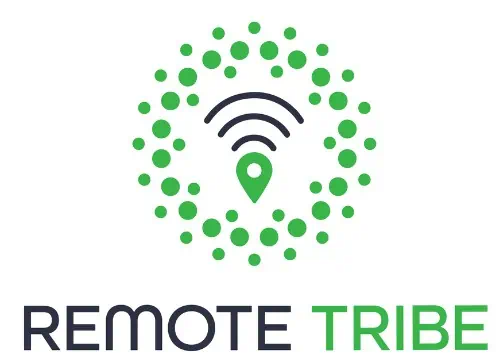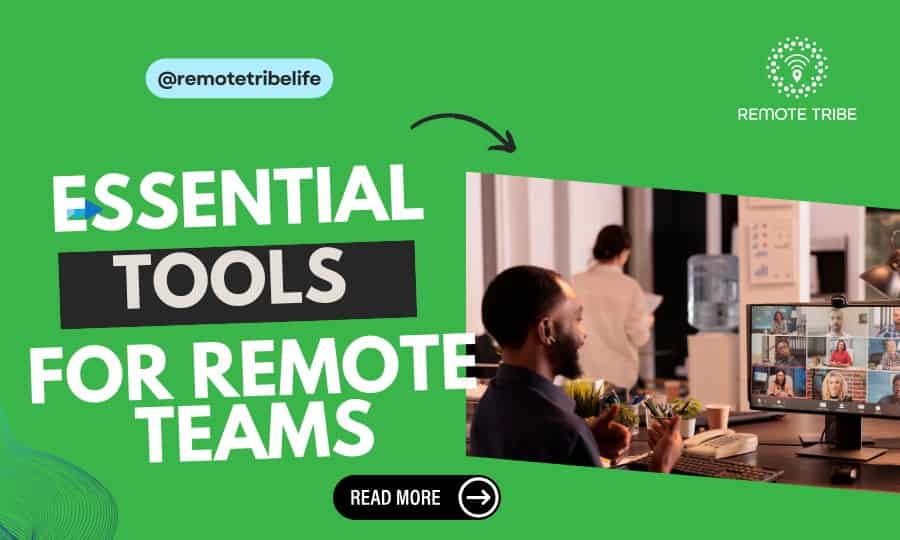Remote employment has been a game changer for entrepreneurs. It provides mobility and access to worldwide talent, and typically lowers expenses. However, managing a remote workforce presents certain obstacles.
If you’re leading a remote startup, you’ll need tools and strategies to keep everyone productive and connected. Let’s dive into some essentials that can help your team thrive.
Embrace Effective Communication Tools
Without face-to-face interactions, misunderstandings can happen easily. To keep everyone on the same page, you should invest in reliable communication tools that suit your team’s needs.
Instant Messaging and Collaboration Platforms
Tools like Slack, Discord, or Microsoft Teams enable rapid interactions and cooperation. They let your team chat in real-time, share files, and even integrate other apps to streamline workflows. These platforms support creating different channels for specific projects or topics, helping to organize discussions and reduce clutter.
Video Conferencing Tools
Regular face-to-face interaction helps build trust and camaraderie. Apps like Zoom or Google Meet enable you to hold virtual meetings, brainstorming sessions, and even casual hangouts.
Other tools like Cisco Webex and BlueJeans also provide robust video meeting solutions. Some offer breakout rooms for smaller group discussions, recording capabilities for those who can’t attend live, and integration with calendars to simplify scheduling.
Not all communication needs to happen in real time. Tools like Loom for recording and sharing video messages, and documentation platforms like Notion or Confluence, allow team members to communicate and access information at their convenience.
Asynchronous Communication Tools
Not all communication needs to happen in real time. Tools like Loom for recording and sharing video messages and documentation platforms like Notion or Confluence, allow team members to communicate and access information at their convenience.
If you want to become a digital nomad or find your crew, sign up for our free newsletter and get upcoming articles straight to your inbox!
We’ve got some great content on our Instagram and on our Facebook Group too where you can network with other nomads from all over the world.
Subscribe to our Newsletter
Get The Latest News On Digital Nomad Lifestyle, Remote Working Communities
And Much More.
100% spam free. We never share your email address. Unsubscribe anytime!
Implement Project Management Software
Keeping track of tasks and deadlines is vital for any startup. However, when you’re working remotely, you can’t just walk up to your teammate’s desk for a quick update. You need a centralized system to manage projects and ensure everyone knows what they should be working on. Project management tools help you assign tasks, set deadlines, and monitor progress, keeping your team aligned and productive.
Task Management Apps
Platforms like Asana or Trello allow you to break down projects into tasks and subtasks. These tools feature visual boards or lists that make it simple to see the status of each task at a glance. For instance, Trello’s Kanban boards let you move tasks through different stages, such as “To Do,” “In Progress,” and “Done.”
Shared Calendars
Using a shared calendar like Google Calendar helps everyone stay aware of important dates, meetings, and deadlines. You can create multiple calendars for different projects or teams and share them with relevant members. This ensures that everyone is on the same page regarding upcoming events and can plan their schedules accordingly.
Time Tracking Tools
Keeping track of how time is spent on different tasks can help improve productivity and project planning. Tools like Toggl or Harvest allow team members to log the time they spend on tasks, providing insights into resource allocation.
Prioritize Data Privacy and Security
When working remotely, your team’s devices and networks become extensions of your company’s digital infrastructure. Ensuring data privacy while working remotely is critical for protecting your company’s assets and maintaining customer confidence.
Use Secure Networks
Encourage your team to use Virtual Private Networks (VPNs) when accessing company data. VPNs encrypt their internet connection, making it difficult for hackers to intercept data. Tools like NordVPN Teams or Cisco AnyConnect provide secure VPN solutions suitable for businesses.
Implement Strong Password Policies
Weak passwords are a common vulnerability. Use password managers like 1Password or LastPass to help your team create and store strong, unique passwords for all their accounts. These tools generate complex passwords and autofill them when needed, reducing the risk of password reuse and simplifying login processes.
Enable Multi-Factor Authentication
Adding an extra layer of protection using multi-factor authentication (MFA) makes it more difficult for outsiders to access accounts, even if they know the password. Tools like Authy and Google Authenticator make this process easier.
Regular Security Training
Educate your team about common security threats like phishing scams, malware, and social engineering attacks. Regular training sessions or sharing resources help them recognize and avoid potential risks. Platforms like KnowBe4 offer security awareness training and simulated phishing tests.
Manage Finances Wisely
Effective financial management is crucial for startups to survive and thrive, particularly when operating remotely. Managing spending, financial resources, and investments wisely can be the difference between succeeding and failing.
Startup Inventory Financing
If your startup deals with physical products, maintaining inventory can tie up significant capital. Considering options like startup inventory financing can provide the funds needed to purchase inventory without draining your cash reserves. This allows you to meet customer demand promptly and invest your cash in other growth areas.
Budgeting Tools
Use financial software to keep track of expenses, revenues, and forecasts. Tools like QuickBooks, Xero, or FreshBooks offer features for invoicing, expense tracking, and financial reporting. These platforms integrate with your bank accounts and payment processors, automating data entry and reducing errors.
Cash Flow Management
To avoid deficits, regularly monitor your cash flow. Create cash flow projections and update them regularly. Tools like Float or Pulse help you forecast cash flow based on real-time financial data.
Foster Transparency and Trust
It takes conscious work to establish and preserve confidence in the absence of the regular encounters found in an office setting. Being transparent in your operations not only builds trust but also empowers your team to contribute effectively.
Share Company Updates
Regularly share updates on performance, strategic decisions, and market developments. This transparency helps team members understand how their work contributes to the bigger picture. Use company-wide emails, newsletters, or town hall meetings to disseminate information.
Lead by Example
Demonstrate transparency and trustworthiness in your actions. Be open about challenges you’re facing and admit when you don’t have all the answers. This sincerity inspires others to be honest and develops a culture of trust.
Final Thoughts
Managing a remote startup team isn’t without its hurdles. With the right tools and strategies, you can build a productive and cohesive team. By focusing on effective communication, ensuring data privacy in remote work, and investing in your team’s growth, you’ll set your startup on the path to success.
Remember, flexibility, trust, and transparency are your allies in this journey. Embrace these principles, and you’ll navigate the remote work landscape with confidence.
Your Travel Resources Handy In One Place 🗺️
🧳 Travel Insurance
Enjoy peace of mind during traveling and don’t leave your country without good travel insurance. We recommend Insured Nomads or Genki for international travel insurance.
💰Travel Finances
Get your travel finances smart and straight with Wise or Revolut.
🏨 Accommodations
For a short stay check out Booking or Agoda. Staying longer? Take a look at the offers at Airbnb. Hostels are the cheapest option that you can explore at Hostelworld.
🏡 Recommended places for long-term stay
Wanna know the accommodations where we lived during our digital nomad journey? Check out the places we enjoyed the most!
🎫 Book tours
Are you up for taking part in epic guided tours? Book ones you like using GetYourGuide or Viator.
🚗 Rent a car
To find great rental car deals check out Rental Cars and get ready for your car trip!
✈️ Book a flight
For the hottest deals check out Skyscanner, Kayak, Google Flights or WayAway.
🛡️ VPN
To stay safely connected while traveling, don’t forget about a good VPN. We recommend Surfshark or NordVPN.








[…] post Essential Tools and Strategies for Remote Startup Teams appeared first on Remote […]